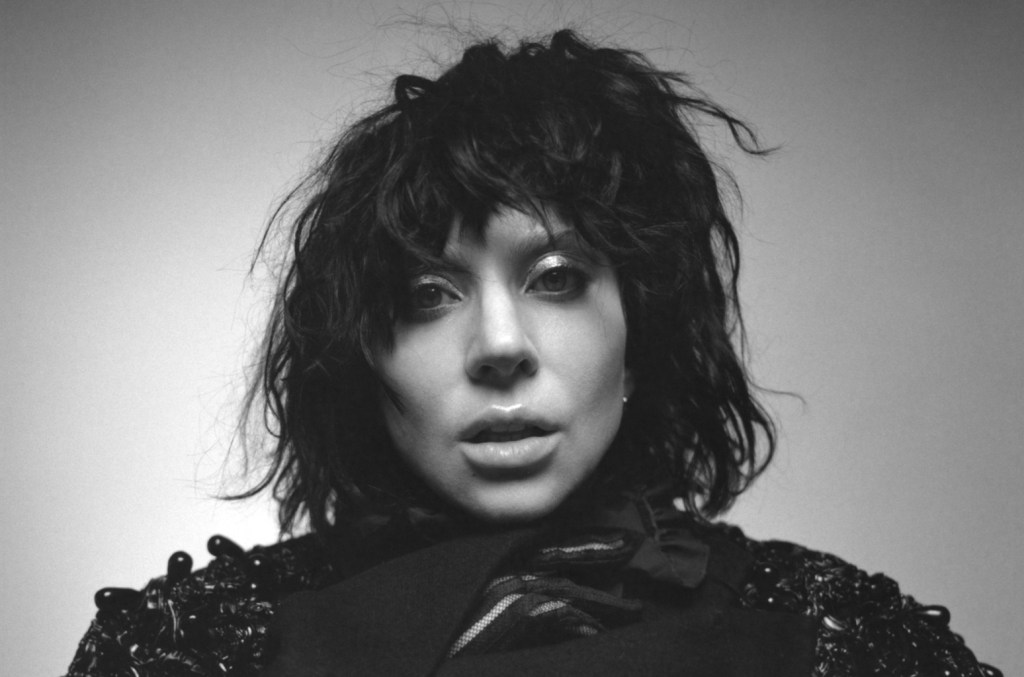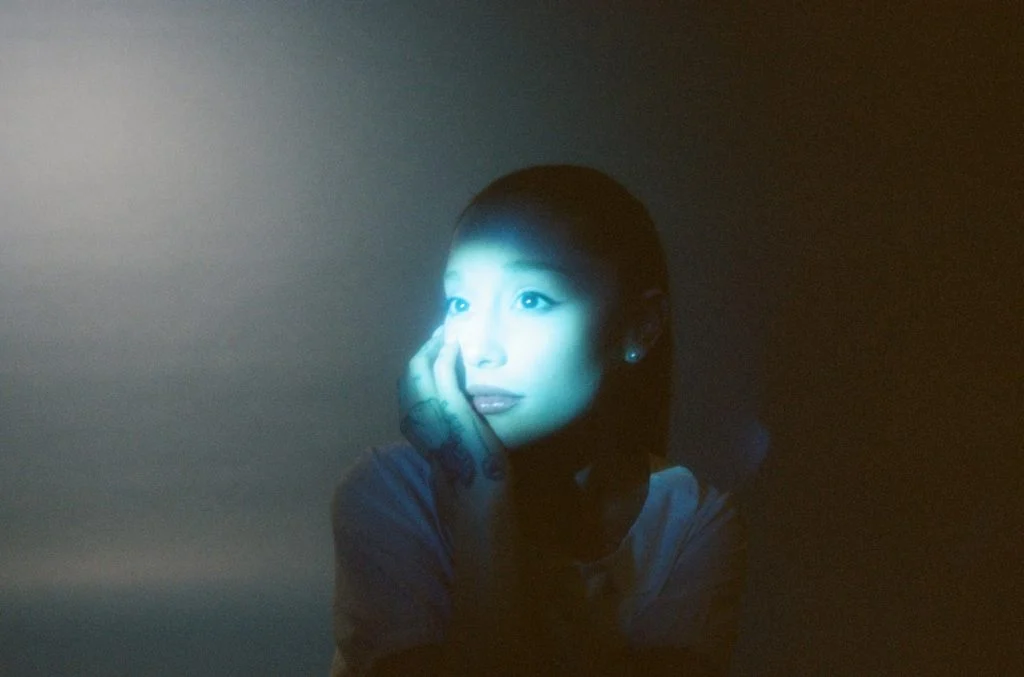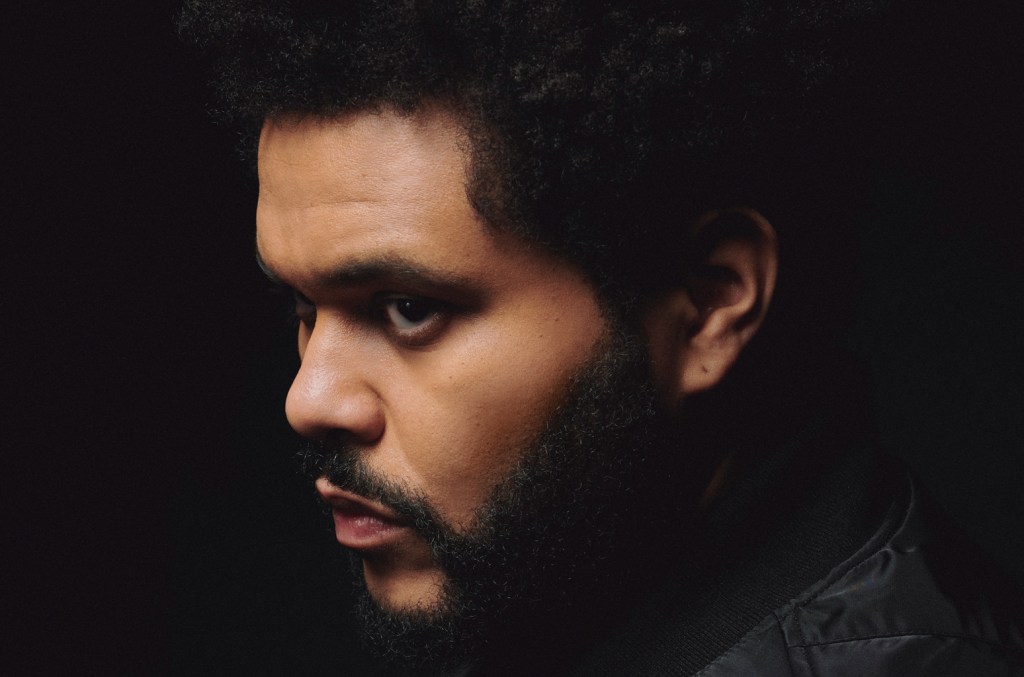genre pop
Page: 98
Lorde seems to finally be answering her fans’ prayers for new music, with the pop star randomly dropping a snippet of an unreleased song on TikTok Wednesday (April 9) ahead of her highly anticipated fourth studio album. In the seconds-long clip, Lorde — wearing a white button-down and jeans — films herself walking through Washington […]

From touring with Taylor Swift in 2013 to selling out stadiums on his own in the years since, Ed Sheeran has performed on some pretty big stages in his career — but the Super Bowl Halftime Show probably won’t ever be added to that list, he says.
On the latest episode of Call Her Daddy posted Tuesday (April 8), the “Bad Habits” singer opened up about his friendship with the Eras superstar as well as revealed whether he’d ever headline the biggest American sporting event of the year. When host Alex Cooper asked if he’d ever been asked to play the Super Bowl, he began, “There was a conversation about 10 years ago to go on with someone, and I think that’d be the only way that I would do it at the moment.”
“I don’t think English artists … I mean, there are some that have the pizazz of Super Bowl, fireworks, dancers, blah, blah, blah, but me going up there and being like, here’s ‘The A Team’ and here’s ‘Perfect,’ no one wants to see that,” Sheeran continued, laughing. “Whereas if there was a show with a lot of that, like if it was Beyoncé’s show, and she had all the bells and whistles, and then there was a moment where we sang ‘Perfect’ together, that makes sense to me.”
Trending on Billboard
The four-time Grammy winner did say that he thinks he could “nail one song” as a guest artist sharing the Super Bowl stage with someone else, but beyond that, he thinks his catalog “doesn’t really lend itself” to the high-energy gameday environment. “Have you seen me play as well? Because it’s with a loop pedal and you have to build the things,” he added. “Doesn’t really lend itself to the Super Bowl. ‘Hey, hang on guys. I’ve just gotta set this up for two minutes.’ You know?”
The interview comes about two months after the 2024 Super Bowl, which Kendrick Lamar headlined with assistance from SZA. In recent years, Usher, Rihanna and The Weeknd have also all added the coveted gig to their resumes.
One star who has generated much speculation over the past few years as to whether she might ever headline is Swift, whom Sheeran has known for more than a decade. Also on Call Her Daddy, the “Shape of You” musician opened up about his longtime friendship with the pop star, sharing that he recently went through their text conversations after being forced to dig out his old devices while preparing his defense for his ongoing legal battle over copyright issues.
“It was really nostalgic going through,” he told Cooper. “I lived in Nashville, and she lived in Nashville, and we used to fly to and from the gigs together and do all sorts of … I don’t know. I literally spent almost every single day with her for about six months, so I think that period of time [was my favorite].”
Sheeran opened for Swift on the North American leg of her global trek supporting 2012’s Red album, on which the pair had a duet titled “Everything Has Changed.” The two singers have since worked together on several more duets, including “End Game” on Swift’s Reputation (2017) and “The Joker and the Queen” on Sheeran’s = (2021).
Now, the British star says he probably sees the “Karma” artist “like, four times a year.” “I see her when I see her,” he said on Call Her Daddy. “Like, instead of catching up the whole time, we have a proper sit-down, six-hour catchups, and I think that’s like a really nice way to do it.”
Watch Sheeran’s full interview above.
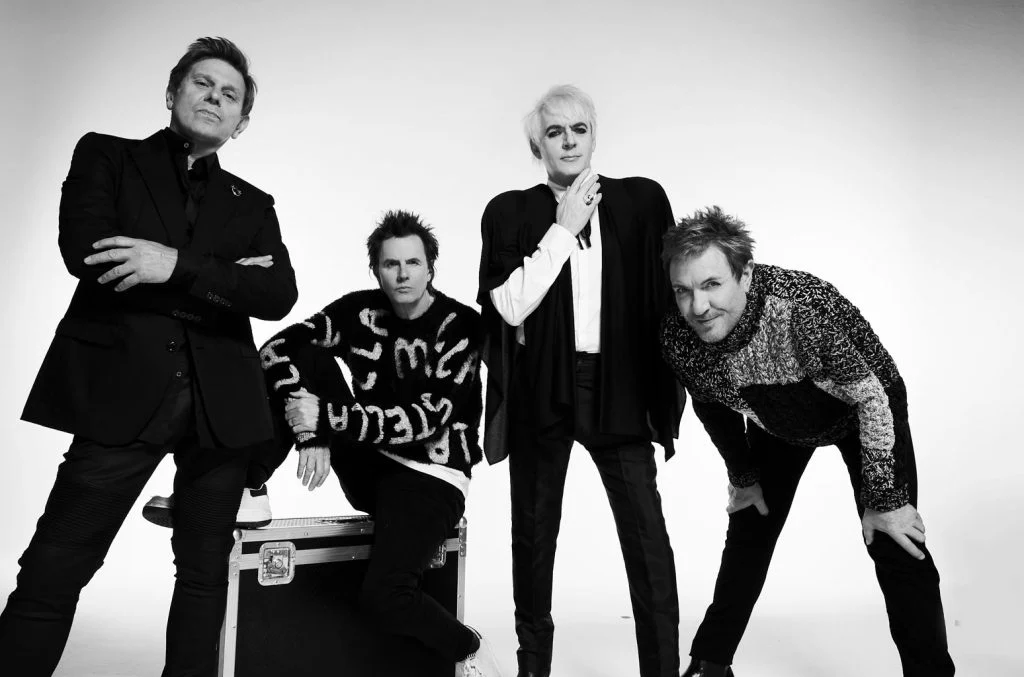
What is the scent profile of Duran Duran? It’s an intriguing question that, until now, didn’t have a definitive answer. It feels safe to assume that the members of the always well-appointed new wave group would never leave the house with an unbecoming scent (or their hair just so).
But now you can get the actual eau du Duran thanks to the band’s collaboration with Italian luxury perfume house Xerjoff on two unisex perfumes created with Singer Simon Le Bon and keyboardist Nick Rhodes, along with bassist John Taylor and drummer Roger Taylor. Rhodes tells Billboard that the two scents, NeoRio and Black Moonlight, are the perfect parfum essences to encapsulate the long-running group’s dueling musical personas.
“We’ve spent our entire careers dealing with two senses: sounds and vision, which we’ve primarily used to communicate and try to excite other people’s sense,” says Rhodes, 62. “And the thought of adding a third, sense of smell in this case, was enormously appealing.” Rhodes says his band was inspired to work with Xerjoff after the company’s 2021 collaboration with Black Sabbath guitarist, and fellow Birmingham, U.K. native, Tony Iommi on his Monkey Special scent.
Trending on Billboard
Rhodes says the band approached the idea of a scent just as they would songwriting, with a “blank sheet,” providing the Xerjoff team with a list of smells they liked. “Some people like the smell of freshly cut grass, nobody doesn’t like that,” Rhodes says. “But it doesn’t mean you want to smell like that all day.”
Working with brand founder Sergio Momo, Rhodes says he and Le Bon were counseled to not just think of flowery scents like roses or gardenias, but to instead open their noses to anything from the smell of paint drying on the wall or that unmistakable whiff of a new book when you first crack it open to aromas you might not associate with a fragrance such as petrol or leather.
“It was more abstract, like if you’re in a room at a museum and staring at your favorite painting and getting the essence of that,” he says, with the discussion then moving on to imagery Momo gleaned from the feelings and moods Rhodes and Le Bon described, such as the funk of a nightclub or a field of flowers.
They narrowed their scent preferences down to five or six, three of them dark and mysterious and the other three sparkly, bright and full of energy, which resulted in two “radically different” fragrances, NeoRio and Black Moonlight. Rhodes says the latter — described as “an homage to the eerie and mysterious world that they so often explore through their music and videos, with a scent that oozes intrigue and sensuality” — was closer to his personality, while Le Bon was more tugged toward the sunshine.
That explains why the profile of Black Moonlight promises to wrap you in a “veil of sophistication” thanks to a mix that includes: “Bergamot and mandarin awaken the senses, whilst saffron, lavender, Sambac jasmine and hazelnut envelop you in an intimate embrace.” The scent is also grounded by base notes of patchouli, vetiver, Tonka bean, and benzoin “to create a rich, timeless scent that mirrors Duran Duran’s ability to blend art, innovation, and emotion.”
In an effort to mirror DD’s career-long musical balance of hopeful optimism with a darker, slinky feeling, the exhilarating NeoRio is described as being as “magnetic and unpredictable as the band itself,” [combining] an “irresistible burst of candied fig and rum with the sparkling freshness of elemi absolute, before unfolding with the fiery warmth of saffron and the elegance of soft rose oil, all anchored by the creamy richness of Tonka bean and the timeless depth of balsam from Peru.”
Rhodes says working with chemist Momo was a revelation, as the “Willy Wonka of perfume” brand boss “seems to have this lexicon of every single scent in the world at his fingertips.” In the end, he says the pair followed their instincts like they do when recording an album, with the resulting fragrances so perfectly representing the identity of the band that Rhodes thinks they could be two songs in DD’s catalog.
“Duran Duran have shaped music and style for over four decades, making them the perfectpartners for not just one, but two Xerjoff Blends creations. Their innovative spirit helped inspire every element of this project, from the scent to the packaging,” said Momo in a statement announcing the two fragrances, which are available to buy here now. “Both scents embody the essence of Xerjoff Blends – where artistic visions unite to create a truly unique, multisensory experience. Collaborating with the band members on every detail of this project has been a very special experience.”
As for the most important real-world test, Rhodes confirms that he’s worn his preferred scent out in the world and that at present he and his partner have been at odds over who gets to wear which one. “We have a battle at home because I’ve usually got the one on and my partner’s got the other one on and when we pass in the corridor they intermingle and some days we both end up with the the same one,” he says.
Duran Duran are gearing up for a run of European arena and festival shows this summer beginning on June 3 with the kick-off gig at the Nokia Arena in Tamepere, Finland.
Check out the promo videos for the fragrances below.
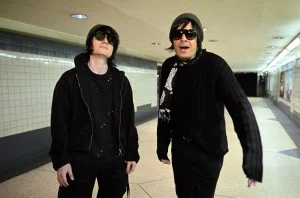
Ed Sheeran joined Jimmy Fallon for the latest “Subway Busking” bit on Tuesday night’s (April 8) Tonight Show. As usual, there were costumes involved in a vain attempt to throw commuters off the scent. In this case, the pair went with an emo theme, with both men wearing all-black outfits and slouchy grey beanies accented […]
As Ed Sheeran readies the release of his forthcoming eighth album, he’s revealed that fans won’t be left waiting too long between singles for fresh material given the record’s “broad” range of sounds.
Explore
Explore
See latest videos, charts and news
See latest videos, charts and news
Sheeran’s comments were made during his appearance on the latest episode of Call Her Daddy, where he spoke with host Alex Cooper about his lyrics, his favorite memory of Taylor Swift, and the embarrassing story of being caught naked in a hotel lobby.
The conversation also switched to the discussion of Sheeran’s new music, which includes the recently-released single “Azizam,” which will feature on his forthcoming album Play. While a release date for the record is yet to arrive, Sheeran used his appearance on Call Her Daddy to talk about the music that is still to come in the near future.
Trending on Billboard
“My idea was because the album is so broad, I didn’t want to just be like, ‘Here’s the single. Here’s the album,’ so there’s music coming every sort of two, three weeks,” he explains. “So there’s ‘Azizam’ now, there’s a song called ‘Old Phone’ that comes out in a couple of weeks, and then after that there’s another song coming.
“We shot all these videos and I’m less about single moments and more about, I want people to sort of feel the breadth of the record and I’m very confident that one of the songs will work, but it’s more about just putting ’em out and letting people hear some of the record before it’s out rather than what I’ve done before, which is just like, ‘Here’s my first single. Here’s the album,’ and yeah.”
While Sheeran has already given fans a preview of “Old Phone” by playing it live on The Tonight Show, Cooper also queried the English musician as to how his new music differs compared to what he had released on previous albums.
“It’s definitely different. I think I’ve been more explorative with this album,” Sheeran explained. “I kind of had an attitude of ‘Why the f–k not?’ and not really felt like I have to be in a box of being a singer-songwriter, of like, ‘I have to do this or I have to do that,’ and I lived in India for a little bit and worked with a load of Indian musicians and producers and blah, blah, blah.
“I made a song like ‘Azizam’ with Ilya who’s Persian and that’s in that world and ‘Old Phone’ I think is more in a Nashville country world and there’s just lots of different moments on the record, and the record is called Play and therefore it has to be playful. It has to be celebratory.”
Sheeran’s forthcoming eighth LP follows on from the release of his two 2023 albums, − and Autumn Variations, which peaked at No. 2 and No. 4 on the Billboard 200, respectively. They were his first records not to peak atop the chart since the release of his 2011 debut, +, and were followed in November 2024 with the standalone single “Under the Tree,” as featured in the Netflix film That Christmas.
As Sheeran explained during his chat with Cooper, the general vibe of Play is set to be far different to what what had arrived on his most recent albums.
“I released two albums that kind of, well, one was the sort of main album and one sort of came off the back of it, but they were both very depressing about quite hard hitting subjects, very muted,” he added.
“I still think they’re beautiful records, but I feel like coming out of that, of you know, going through grief and all that sort of stuff coming out, I needed to have something that felt bright and colorful and playful and that’s where doing St. Patrick’s Day, playing at Tootsie’s in Nashville, doing the New Orleans thing, the whole record just has to feel like fun and exciting.”
Geri Halliwell-Horner is ready to spice your bookshelf: On Tuesday (April 8), the Spice Girls member and bestselling author celebrated the release of her new book, Rosie Frost: Ice on Fire, and stopped by Billboard to discuss her creative process (and what’s to come) in the debut episode of Billboard Book Club Powered by TalkShopLive.
Explore
See latest videos, charts and news
See latest videos, charts and news
Rosie Frost: Ice on Fire is the second entry in a planned young adult trilogy from Halliwell-Horner, following her 2023 book Rosie Frost and the Falcon Queen. After empowering millions of listeners as a global music superstar with the Spice Girls, the artist forever known as Ginger Spice is now reaching a new generation as an author.
Trending on Billboard
“I love books. I just love them. They’ve been my best friends, my companions,” she told Billboard’s executive director of music, Jason Lipshutz, during the Billboard Book Club conversation. “I always love to find myself in a story and process something. And I just thought, ‘You know what? I really want to see a new female character that really connects with us, with who we are now, and someone that is not perfect, and finding the courage you never knew you had.’”
The Rosie Frost series follows a teenage heroine as she navigates through a fantastical world and searches for resolution following the loss of her mother. As she did with the first Rosie Frost entry, Halliwell-Horner recorded a new solo song as a tie-in with the book: “Older Now,” which is available with a book purchase via QR code, is a moving ballad that exists in conversation with the Ice on Fire story, but will also delight longtime fans of the pop star.
“To have the space to be able to play and do this, I’m incredibly grateful,” said Halliwell-Horner of her expanding creativity. In addition to discussing her writing process, reading an excerpt of the new book and discussing future plans for the franchise, Halliwell-Horner also answered fan questions coming in during the livestream — one of which touched upon the possibility of a Rosie Frost film or TV adaptation.
“As I write, I always think in pictures — I can’t help it,” she said. “There are some exciting developments, and I really look forward to sharing them.”
Halliwell-Horner also signed copies of Rosie Frost: Ice on Fire, which fans can purchase live or via replays of the livestream.
Billboard Book Club interviews will be featured on Billboard.com, on Billboard’s TalkShopLive channel and be simulcast to Billboard’s Facebook and Instagram pages. Viewers watching on Facebook and Instagram can comment the word “shop” to receive a link in their direct messages to purchase.
All sales from Billboard and TalkShopLive via TalkShopLive’s book distribution partner, ReaderLink, count toward The New York Times‘ Best Sellers list.
Watch Halliwell-Horner’s interview with Billboard above.
For the first time in 11 years, Australian Little Monsters will get to see pop icon Lady Gaga perform live Down Under. On Tuesday (April 8), Gaga announced three new dates for her 2025 Mayhem Ball tour, each taking place in stadiums across Australia — her first stadium shows in the country. Kicking off Dec. […]
In just over one year, Ariana Grande released her seventh studio album Eternal Sunshine on March 8, 2024, then starred in the Oscar-winning movie musical Wicked that hit theaters in November, and has now returned with the Brighter Days Ahead deluxe reissue of that album on March 28. On the new Billboard Pop Shop Podcast, […]
There’s no way of speeding up the time that’s still left before The Weeknd‘s Hurry Up Tomorrow premieres, but some lucky fans will get to see the film a little bit early.
As announced on his social media accounts Tuesday (April 8), the artist born Abel Tesfaye is planning a nationwide one-night-only early fan screening set for 6 p.m. local time May 14, two days before the movie — which serves as a companion project to the star’s album of the same name — officially premieres in theaters. Tickets go on sale April 17.
Those who scoop tickets will be among the first to see Hurry Up Tomorrow. They’ll also get to see exclusive never-before-screen bonus content after the film ends.
Trending on Billboard
Starring the “Blinding Lights” singer, Jenna Ortega and Barry Keoghan, Hurry Up Tomorrow tells the story of a fictionalized version of The Weeknd, who — “plagued by insomnia” — becomes wrapped up in an “odyssey with a stranger who begins to unravel the very core of his existence,” according to a description.
Tesfaye previously raved about his costars in a January interview with Variety, gushing, “Jenna brought so much depth to the character … there was a scene where Trey and I looked at each other like, ‘On paper, this is just ridiculous — how is it going to translate on screen?’ And she said, ‘I have an idea.’ She led that whole scene — none of it was rehearsed, and a lot of my reactions in it are not acting.”
“[Barry] was a friend of mine prior to all this, and he was always number one on my list for his role,” he continued at the time. “What makes him different from Jenna is that his talent is so raw, it just comes so naturally to him.”
The film also serves as a good-bye to Tesfaye’s The Weeknd alias, which he confirmed he’d be retiring in the Variety interview following his Hurry Up Tomorrow album era. Released in February, the LP debuted at No. 1 on the Billboard 200 and follows 2020’s After Hours and 2022’s Dawn FM in a now-complete album trilogy.
Shortly before the film hits theaters, Tesfaye will hit the road on his After Hours Til Dawn Tour kicking off May 9 in Phoenix.
See the fan screening event announcement below.
For the third time — and in the second different calendar year — Ariana Grande’s Eternal Sunshine tops the Billboard 200 this week.
The album, which originally debuted atop the chart dated Mar. 23, 2024 and spent two weeks at No. 1, returns to the apex with 137,000 units moved, according to Luminate. The album’s resurgence comes following the release of its Brighter Days Ahead deluxe edition, which boasts six bonus tracks — all of which appear on this week’s Billboard Hot 100, led by “Twilight Zone” at No. 18 — and comes with a short sci-fi film of the same name, starring Grande and her father, Edward Butera.
Do we think the commercial response validates the relatively lengthy wait for the deluxe edition? And what do we make of this mini-movie? Billboard staffers discuss these questions and more below.
Explore
Explore
See latest videos, charts and news
See latest videos, charts and news
1. Eternal Sunshine returns to No. 1 on the Billboard 200 this week — a year after topping it the first time — with 137,000 units moved, following the release of the set’s Brighter Days Ahead edition. Is that performance better than, worse than, or about what you would have expected?
Trending on Billboard
Hannah Dailey: Overall, I would say that it’s even better than I expected for a deluxe edition released a full year after the original – but I did anticipate the deluxe doing well in general. I think a lot of people really underestimate just how loved this album is. I’m certainly not surprised that there’s still so much interest in it all this time later!
Kyle Denis: Much better. I assumed the album would return to the bottom half of the top 10 – especially because there’s no current radio single from the standard version and “Twilight Zone” didn’t exactly explode upon release – but to pull a six-figure total and return to No. 1 over a behemoth of a Playboi Carti album and Lil Durk’s latest set is amazing.
Lyndsey Havens: What I would expect. Ariana is a consistent chart-topper at this point, and the only thing I wouldn’t see coming is if Brighter Days Ahead fell short of the tally’s top spot. And the thing I love about this particular feat is that it wasn’t a curiosity rebound, meaning I don’t get the sense people listened only out of curiosity and then moved on. The songs on this deluxe are that good — and if Eternal Sunshine didn’t tell such a tightly knit story, they could have easily arrived then. But that’s what I love most about this deluxe; it arrived when the stories in these songs needed to be told, and when Ari was ready to tell them.
Jason Lipshutz: Better. Deluxe editions of major albums typically don’t arrive one year after the original album’s release, and considering how much of Ariana Grande’s focus has been on Wicked (and the upcoming Wicked: For Good), it’d be easy to surmise that she and her fans had moved on from Eternal Sunshine. So the fact that these deluxe tracks arrived less like a belated thank-you and more like the completion of a beloved project, with a six-figure equivalent album units total and a return to the top of the Billboard 200, represents a major win for Grande, on an occasion that she could have dismissed as minor.
Andrew Unterberger: Definitely better. This deluxe came a long time after the original album, and it feels it — since so much else happened in the interim, both in Grande’s career and pop music in general. To still have enough in interest in you and your most recent project to chart a half-dozen new songs on the Hot 100 (and none that low), while moving six digits’ worth of album units, should all feel pretty validating for Grande.
2. A year is a long time in 2025 to wait to release a proper deluxe edition of a hit album. Do you think it has proven a smart strategy for Grande, or should she have come with it a little sooner?
Hannah Dailey: I’d usually say a year is an egregiously long time to wait between an album and deluxe, but in this specific case, I think the distance was to Grande’s benefit. First of all, a lot of the big pop releases that came after Eternal Sunshine in 2024 kind of overshadowed the album and pushed it out of the general public’s consciousness a bit; waiting this long to drop the deluxe gave it more than enough space from those other releases to totally stand out and have a second chance at being a quintessential pop moment of 2025, if not 2024. Second, it was nice to have a breather from all the Wicked craziness before Eternal Sunshine Part 2. It gave us a bit of time to miss Grande before she did anything else and re-orient our brains back to thinking of her as in pop star mode, not Glinda mode.
Kyle Denis: I think it’s absolutely proven correct. She was risking serious overexposure if she launched a deluxe edition with six new songs and a movie while she was still knee-deep in Wicked press. The standard version got ample time to shine, and the deluxe now has several months – before Wicked: For Good press ramps up – to itself. It also helps that Grande put out a “slightly deluxe” version of the album in between its initial release and Brighter Days Ahead, so her Eternal Sunshine rollout has been meticulously plotted to avoid having too much Ari at one time.
Lyndsey Havens: I’m genuinely curious how much of it was strategic and how much of it was basic logistics and/or intuition. Since Eternal Sunshine has arrived, Ariana has mostly been in Wicked promo mode. For the deluxe to arrive after awards season makes perfect sense on paper. But what could make even more sense is that Ariana could have still been living in or stuck on the stories behind these songs, and all they needed was a bit more time and space. Either way, I would love if this practice is adopted more. Take SZA’s Lana, for example: Was it a stretch to call it a deluxe? Sure. But was it nice to have some space in between projects? I think so. And at the end of the day, I think the best strategy is releasing something when the artist feels it’s ready — because that’s when it will likely hit the hardest.
Jason Lipshutz: Six months ago, I would have said the latter… but as it turns out, Grande was smart to roll out these songs following Wicked campaign. A months-long awards tour made it impossible for Grande to focus on Brighter Days Ahead promotion, so if these songs had arrived in late 2024 or early 2025, there likely would have landed as more of an afterthought during a hectic time. And instead of serving them up a month or two after Eternal Sunshine’s release, Grande let the standard edition stand on its own — and “We Can’t Be Friends (Wait For Your Love)” grow into one of her most enduring hits — before giving these deluxe tracks their own moment. A unique strategy for unique circumstances, but she pulled it off expertly.
Andrew Unterberger: I think it’s proving pretty smart. Intuitively I would’ve said it was a little late, but most deluxe projects come so early these days — sometimes just days, if not mere hours — after their originals that Grande actually giving some real breathing room between the two is something I’m more grateful for than I would have expected. (The songs being good also certainly helps!)
3. “Twilight Zone” is the clear leader of the new tracks from the reissue on the Hot 100 this week, debuting at No. 18. Does it feel like a long-lasting hit to you, or will it fall once the reissue’s early momentum wears off?
Hannah Dailey: It definitely sounds like a hit to me, and I love how it adds to the narrative of the rest of the album. I predict that it’ll be a slow grower – it’s not the splashiest-sounding pop song, but it’s one that’s been getting randomly stuck in my head repeatedly ever since it came out, and I’m guessing I’m not the only one. I think that people will continue to keep coming back to it more and more over the next few weeks.
Kyle Denis: I think it depends on how much Grande is willing to do for the song. If it gets a standalone video and some kind of live performance, I can see “Twilight Zone” sticking around the charts as a cute springtime hit. If she lets these songs sit and shifts her focus back to Wicked, I anticipate “Twilight Zone” falling a bit faster than the average Grande single.
Lyndsey Havens: What’s crazy to me is while all five of the new tracks compete for the title of my favorite, “Twilight Zone” doesn’t often lead the list. It’s almost like each new song is better than the last, as I loved “Warm” but then “Dandelion” (the horn!) into “Past Life” into “Hampstead” is just an incredible run. But I do think “Twilight Zone” is the most sonically linked to Eternal Sunshine, which is why it was the perfect track to open the deluxe — and maybe why it’s connecting the most right now.
Jason Lipshutz: I think “Twilight Zone” is actually in for a pretty lengthy run, based on three things: the quality of the song, Grande’s established presence at top 40, and the fact that no new non-Wicked music is on the horizon. “Twilight Zone” travels down the same cozy synth-n-B path as “We Can’t Be Friends,” and streaming playlist curators and radio programmers should embrace it pretty quickly; the Wicked For Good campaign will dominate Grande’s focus during the second half of the year, so even if Eternal Sunshine tumbles back down the Billboard 200, this song will stand as her traditional pop bid in the months leading up to the film.
Andrew Unterberger: It does feel like a hit to me, but I’m not sure that it actually will be. Top 40 is just embracing so few new songs from anyone these days — even from proven hitmakers like Grande — and I’m not sure if the format will cut into its Benson Boone or Gracie Abrams spins for this deluxe edition song, especially if Grande isn’t really gonna push it herself. I hope it does, though — or that it finds footing enough on streaming to be a long-lasting hit there — because it certainly does deserve to have that kind of endurance.
4. In addition to the new songs, Brighter Days Ahead comes with an accompanying short film of the same name, featuring many of the album’s tracks. Does the mini-film add much to the album era/experience to you?
Hannah Dailey: Honestly, the short film didn’t do much for me by way of enhancing the album. I more just love to see Grande marrying her loves for music and acting in a way that clearly makes her feel really fulfilled creatively, and in general it was nice to have something extra to end the Eternal Sunshine era on a grander note.
Kyle Denis: In some ways, yes. Longtime Grande fans are very aware of how rocky her relationship with her father has been throughout her career, so to see him make a cameo in the film as the doctor who uses music to put her back together after the press tore her to shreds… that was an unbelievably beautiful full-circle moment. Brighter Days Ahead is also easily the strongest distillation of Grande’s creative pysche that she’s offered so far; her beloved horror elements are on full display, and the film’s throughlines help emphasize the message of Eternal Sunshine and flaunt her dramatic acting skills. While the pacing was a bit clunky, the short film only leaves me more excited to see where Grande (and Christian Breslauer, or perhaps a different collaborator?) goes next visually.
Lyndsey Havens: Only in the sense that it’s a great metric for fans to understand that in this case, similar to what I said above, this deluxe isn’t necessarily a strategic play. Creating and delivering a short film to accompany these new tracks only proves how much of a story is baked into them, and how moved Ariana felt to not only tell that story, but bring her fans into it, in more ways than one.
Jason Lipshutz: The short film adds a compelling visual element to the Eternal Sunshine deluxe edition, but ultimately, “Twilight Zone” transcends the greater context around it, just like prior Hot 100 chart-toppers “Yes And” and “We Can’t Be Friends.” Grande has spent time over the past eight years re-positioning herself as a traditional albums artist after breaking through with a string of hit singles beginning in 2013… but full-length statements like Thank U, Next, Positions and Eternal Sunshine still contain those hits, and her latest album is defined by those radio-ready standout moments. If the short film better exemplifies the tone of Eternal Sunshine, Grande’s latest chart hit prolongs the era with more powerful commercial intent.
Andrew Unterberger: I can’t be mad at any music video with real ambition (and a real budget!) in 2025.
5. Has your relationship with or view of Eternal Sunshine changed any over the past year from when it was released?
Hannah Dailey: I loved Eternal Sunshine on my very first play-through, and I have loved it (and listened to it on, at minimum, a weekly basis) ever since. To me, it still represents Grande in a place of full creative liberation – you can hear that she made these songs, both original and deluxe, not because she had to, but simply because she had music and words inside of her that desperately needed to come out in the studio. If anything, I’ve come to accept more since its release that this could very likely be the last album we get from her in a long time as she shifts her focus to acting, which makes listening to it a little more bittersweet.
Kyle Denis: I already loved it upon release, and I’ve only grown to appreciate it more. Eternal Sunshine is now officially my favorite Ari album. She’s really settled into post-Imogen Heap/Brandy lane that suits her damn-near perfectly.
Lyndsey Havens: Hm, not really. I think another benefit of releasing a deluxe so long after the album itself is that it can reignite interest. While I listened to Eternal Sunshine on loop for months after it came out, naturally that fades with time and with more and more new music always incoming. So, while my love for the album never waned, this deluxe has only helped strengthen my relationship with it once again. And now, perhaps unfortunately for me, it’s only left me wanting even more.
Jason Lipshutz: Definitely — after previously considering Eternal Sunshine a mid-tier Grande project, the album’s emotional maturity has resonated with me in a clear way in the months following its release. The Brighter Days Ahead songs have underlined the overall project’s tone and purpose — so, chart performance aside, the deluxe edition has been an unequivocal success.
Andrew Unterberger: Not really, but I do have more of a belief now that it will go down as a classic album and a major part of her legacy.

 State Champ Radio
State Champ Radio 

